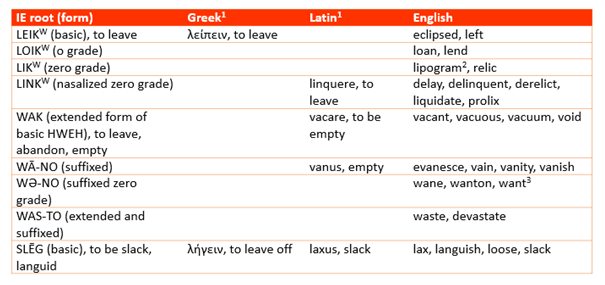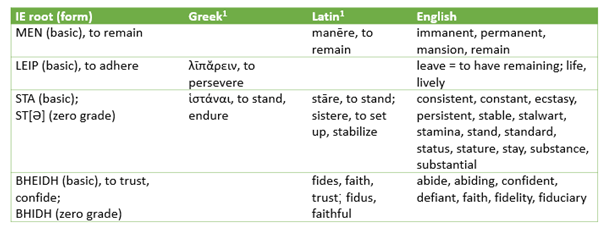 Among all the misleading statements and frank untruths with which we’ve been bombarded by both sides in the debate on the forthcoming referendum, one form of argument has not, as far as I can tell, been mentioned—the etymological one.
Among all the misleading statements and frank untruths with which we’ve been bombarded by both sides in the debate on the forthcoming referendum, one form of argument has not, as far as I can tell, been mentioned—the etymological one.
As followers of this blog know, the English judge Sir William Jones observed, in 1786, that “No philologer could examine [Sanskrit, Greek, and Latin] without believing them to have sprung from some common source, which, perhaps, no longer exists.” That common linguistic source was later (1813) called “Indo-European”.
Julius Pokorny’s Indogermanisches Etymologisches Wörterbuch (1959) lists about 2000 Indo-European roots, which give rise to many thousands of English words. This multiplication has come about firstly because the main vowel in each Indo-European root can have several different forms, by the effect known as ablaut, a German term that was introduced by the 19th century philologist Jakob Grimm and which means an off sound or graduated sound, as in the English noun song and the corresponding verb forms sing, sang, and sung.
The basic form of Indo-European (IE) roots is the so called e-grade form, which contains a short e or a long ē. That can change into the so called o-grade form, with a short o or a long ō. The vowel can also disappear or be replaced by a neutral vowel sound called a schwa, after the Hebrew vowel of that name, the so called zero-grade form. The schwa, represented in print by an inverted e (ə), typically occurs in weakly stressed syllables. Some pronounce “remain” with a schwa (/rəˈmeɪn/).
In addition, each ablaut form can have suffixes and prefixes added. Other changes include shortening, nasalisation by the insertion of the letter n, reduplication, or compounding with other forms. Each resultant form can by itself give rise to several different words.
The roots and derivatives of various words related to the meanings “leave” and “remain” are analysed in the tables below. The right hand columns are the ones to concentrate on.
As part of this analysis, it is important to note that “leave” is two-faced. It is a Janus word (also known as an autoantonym or contronym), having two opposite meanings. The classic example of this is “cleave”, which can mean to split or to stay together, because it has converged from two different Old English words, cléofan and cleofian. Similarly, one should not confuse “leave”, meaning to go (he left the room), with “leave”, meaning to cause to remain (he left food on his plate). They come from different roots entirely, as the tables show. The former is related to dereliction, the latter to life.
So, which do you prefer: delinquent, derelict, devastated, eclipsed, evanescent, languishing, lax, liquidated, loose, slack, vacant, vacuous, vain, vanished, void, waned, wanting, wanton, wasted, worthless or abiding, confident, consistent, constant, defiant, ecstatic, faithful, fiduciary, immanent, lively, permanent, persistent, stable, stalwart, standard, standing, substantial?
It looks like a no-brainer to me.
Table 1. Indo-European roots related to “leave” and the English words that come from them

1 where there are no Greek or Latin derivatives the English words descend from Germanic, Dutch, and Norse forms
2 a form of writing in which something is missing, such as the letter e in George Perec’s novel La Disparition, translated by Gillbert Adair as A Void
3 many Old English words that begin with wan-, which is approximately equivalent to un- or mis-, indicating negation, have not survived; they include wanchancy (unlucky, dangerous), wancheer (grief, sadness), wancouth (uncouth), wandeidy (mischievous), wandought (feeble, ineffective), wanease (vexation), wanfortunate, wanhap, wanliesum (unlovely), wanlit, wanluck, wanown’t (unowned), wanreck (mischance, ruin), wanrest, wanthriven, wanuse (misuse, waste), wanweird (misfortune), and wanworth (worthless).
Table 2. Indo-European roots related to “remain” and the English words that come from them

Jeffrey Aronson is a clinical pharmacologist, working in the Centre for Evidence Based Medicine in Oxford’s Nuffield Department of Primary Care Health Sciences. He is also president emeritus of the British Pharmacological Society.
Competing interests: None declared.
